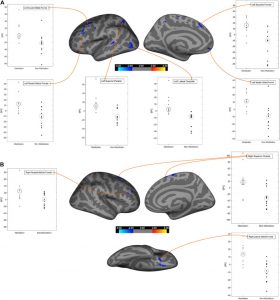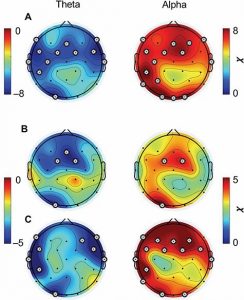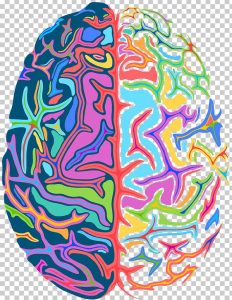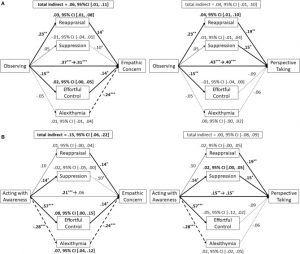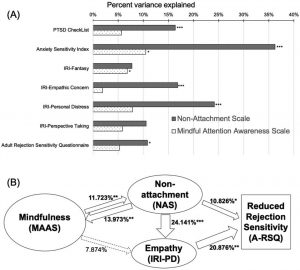Improve Sleep in Resident Physicians with Meditation
By John M. de Castro, Ph.D.
“residents. . . are on the move, working rotations in different clinics and even different hospitals. “Life in the hospital can be very stressful for residents. They aren’t just working long hours, they’re also geographic orphans.”- Chandra Are
Resident physicians have long tense shifts. The resultant stress can impair sleep. Not having adequate sleep has adverse effects upon the individual’s health, well-being, and happiness. Sleep deprivation is associated with decreased alertness and a consequent reduction in performance of even simple tasks, decreased quality of life, increased difficulties with memory and problem solving, and increased likelihood of accidental injury including automobile accidents. So, it is important that methods be found to improve sleep in resident physicians. Contemplative practices have been shown to reduce the psychological and physiological responses to stress and improve well-being. Indeed, mindfulness has been shown to be helpful in treating and preventing burnout, increasing resilience, and improving sleep. So, meditation may be able to improve sleep in resident physicians.
In today’s Research News article “Sleep Patterns of Resident Physicians and the Effect of Heartfulness Meditation.” (See summary below or view the full text of the study at: https://www.ncbi.nlm.nih.gov/pmc/articles/PMC8558985/ ) Thimmapuram and colleagues recruited medical residents and had them record sleep for a week including objective measurement with actigraphy. They received heartfulness meditation training for 20 minutes per day for one week and practiced this meditation for 6 minutes each night before sleep. After the weeks training sleep was measured again for 1 week.
They found that in comparison to baseline after meditation training there was a significant reduction in self-report and actigraphy measures of mean sleep onset time and sleep fragmentation and a significant increase in sleep quality and restfulness. There were no significant changes in caffeine or alcohol intake or naps.
It should be kept in mind that there wasn’t a comparison (control) condition leaving open many confounding alternative explanations including expectancy (placebo) effects, attentional and Hawthorne effects, experimenter bias etc. In addition, there were no follow-up measures to determine if the effects were lasting. So, conclusions must be limited and tempered. Nevertheless, the present study provides evidence that meditation training may result in improved sleep for medical residents. This may result in reduced stress and better health and performance.
So, improve sleep in resident physicians with meditation.
“Sleep deficiency impairs performance and patient safety, adversely affects the mental and physical health of resident physicians, and increases their risk of occupational injury and motor vehicle crashes,” – Charles Czeisler
CMCS – Center for Mindfulness and Contemplative Studies
This and other Contemplative Studies posts are available on Twitter @MindfulResearch
Study Summary
Thimmapuram, J., Pargament, R., Tredici, S. D., Bell, T., Yommer, D., Daoud, D., Powell, F., & Madhusudhan, D. K. (2021). Sleep Patterns of Resident Physicians and the Effect of Heartfulness Meditation. Annals of neurosciences, 28(1-2), 47–54. https://doi.org/10.1177/09727531211039070
Abstract
Background:
Medical residents are vulnerable to poor sleep quality due to intense work shifts and academic load. Studies objectively quantified with sleep quantity and quality among resident physicians are limited. Meditation techniques have been shown to improve sleep but are rarely studied in this population. The aim of the present study is to evaluate sleep patterns of internal medicine residents and the effect of a structured Heartfulness meditation program to improve sleep quality.
Methods:
A total of 36 residents participated in a pre–post cohort study from January 2019 through April 2019. Sleep was monitored during a one-week outpatient rotation with two validated assessment tools, namely consensus sleep diary and actigraphy. After four intervening weeks, when the residents returned to the same rotation, Heartfulness meditation was practiced and the same parameters were measured. At the end of the study period, an anonymous qualitative feedback survey was collected to assess the feasibility of the intervention.
Results:
All 36 residents participated in the study (mean age 31.09 years, SD 4.87); 34 residents (94.4%) had complete pre–post data. Consensus sleep diary data showed decreased sleep onset time from 21.03 to 14.84 min (P = .01); sleep quality and restfulness scores increased from 3.32 to 3.89 and 3.08 to 3.54, respectively (P < .001 for both). Actigraphy showed a change in sleep onset time from 20.9 min to 14.5 min (P = .003). Sleep efficiency improved from 83.5% to 85.6% (P = .019). Wakefulness after initial sleep onset changed from 38.8 to 39.9 min (P = .682). Sleep fragmentation index and the number of awakenings decreased from 6.16 to 5.46 (P = .004) and 41.71 to 36.37 (P = .013), respectively.
Conclusions:
Residents obtained nearly 7 h of sleep during outpatient rotation. Findings suggest a structured Heartfulness meditation practice to be a feasible program to improve subjective sleep onset time and several objective measures among resident physicians.
https://www.ncbi.nlm.nih.gov/pmc/articles/PMC8558985/

